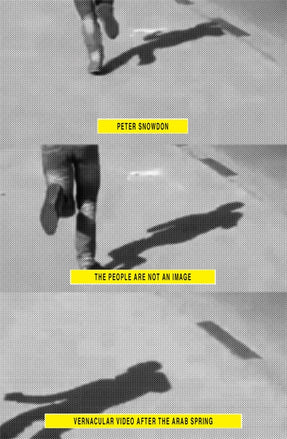Paperback
+ free ebook

+ free ebook
A major intervention in media studies theorizes the politics and aesthetics of internet video
The wave of uprisings and revolutions that swept the Middle East and North Africa between 2010 and 2012 were most vividly transmitted throughout the world not by television or even social media, but in short videos produced by the participants themselves and circulated anonymously on the internet.
In The People Are Not An Image, Snowdon explores this radical shift in revolutionary self-representation, showing that the political consequences of these videos cannot be located without reference to their aesthetic form. Looking at videos from Tunisia, Bahrain, Syria, Libya, and Egypt, Snowdon attends closely to the circumstances of both their production and circulation, drawing on a wide range of historical and theoretical material, to discover what they can tell us about the potential for revolution in our time and the possibilities of video as a genuinely decentralized and vernacular medium.
Throughout the book, Snowdon practices an ethics of close reading that rejects critical habits of regarding images with suspicion. The People Are Not an Image charts hopeful trajectories for several areas of inquiry, from the politics of protest media and self-representation to networked distribution, operational images, and the digital remaking of subjectivity. Yet Snowdon’s ultimate project is more ambitious—to reshape his readers’ political imaginaries.
Peter Snowdon provides a radical philosophical approach to the daily videos produced by the ordinary people of the Arab spring
The People Are Not an Image has significance for scholars but will also find wider audience appeal with, for example, digital media activists, filmmakers, and human rights advocates. It will be especially relevant to digital media and communication scholars and students with an interest in activism, social movements, and visual politics.
This book makes a much-needed intervention in media studies in the Arab regions since 2011, and is a crucial read for all students of media and film studies.